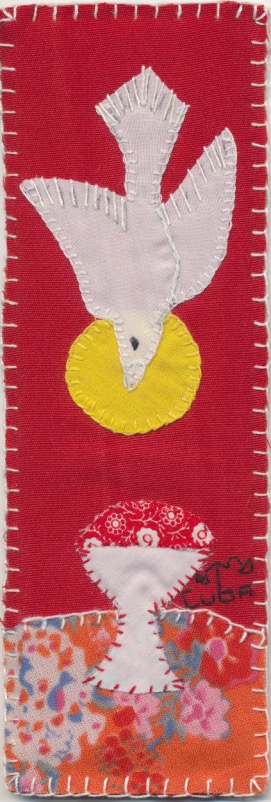Signs of the Times • 7 February 2018 • No. 151
¶ Processional."La Danse de Mardi-Gras," Steve Riley.

Above: Last week’s super blue blood moon over Heart Mountain, Wyoming. Photo by Mack H. Frost.
¶ Invocation. “For truly, God laughs and plays.” —Meister Eckhart
¶ Artwork from prison—and not just any prison: Guantanamo Bay, Cuba. —CBS Sunday Morning (5:26 video. Thanks Abigail.)
¶ Call to worship. This week’s Mardi Gras festival culminates in Fat Tuesday, whose message is the founding doctrine in Scripture: that creation is good. But God’s intent in creation has been hijacked. The invitation list, of who’s invited to the party, who’s allowed at the table, has been taken over by people who believe the only way they will get in is by excluding others.
Guide us now, Beloved, as we untangle our hearts.
¶ Moments in civil rights history. In 1952, Autherine Lucy, a young African American woman was accepted into the 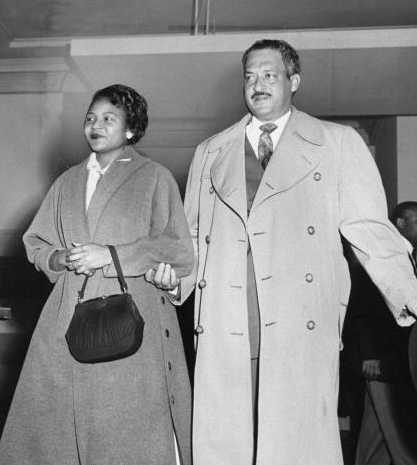 University of Alabama. When the school found out she was black, she was refused entry. What followed was a four-year legal battle. (1:58 video. Thanks Steve.) More short video stories at “Voices of the Civil Rights Movement,” a project of Comcast NBCUniversal and the Equal Justice Initiative.
University of Alabama. When the school found out she was black, she was refused entry. What followed was a four-year legal battle. (1:58 video. Thanks Steve.) More short video stories at “Voices of the Civil Rights Movement,” a project of Comcast NBCUniversal and the Equal Justice Initiative.
Right: Autherine Lucy, escorted by Thurgood Marshall who tried her case on behalf of the NAACP Legal Defense Fund. Marshall was later appointed to the US Supreme Court. Photo by Al Pucci, NY Daily News via Getty Images.
¶ Good news. “Hailed as an example of how concerted global action can help solve a planetary crisis, a new study conducted by NASA scientists documented the first direct evidence that an international effort to ban chlorofluorocarbons (CFCs) has led to the recovery of the Antarctic ozone hole.” Responding to the report, Greenpeace said, “We've stopped harmful pollutants before and nature has healed itself. Let's cut carbon emissions now and allow nature to heal itself again." —Jake Johnson, CommonDreams
¶ Takin’ it to the streets. Clowns, dancers, musicians, performers and play specialists work with children in Europe’s refugee camps. —BBC (2:10 video. Thanks Abigail.)
¶ Hymn of praise. Rhythmic performs Antonio Vivaldi’s “Storm” like you’ve never heard it before. (Thanks Pat.)
¶ Confession opens the way to ecstasy, to the border of a graciousness and a mercy that is difficult to imagine, where there is a richness and beauty to life. The risk of confession and the experience of pardon is what opens us to the knowledge that we are headed to a party, not a purge.
¶ Hymn of supplication. “Use me, Lord, in thy service / Draw me nearer, Lord, everyday / I'm willing to run all the way / If I faulter while I'm trying / Don't be angry, just let me stay / I'm willing to run all the way.” —Mahalia Jackson, “Run All the Way”
¶ “I played [football] for 11 years, beginning in grade school, and enjoyed watching for many more after that. American style football is as choreographed as any ballet performance. Except when the ball is snapped, it turns into  something like an after-hours jazz band jam, with improvisation by 22 different players. . . . But the beauty of the game is now overshadowed by its beastly afterword.” —continue reading “No time outs left: A national conversation about the dangers of American style football is underway. Thank goodness.”
something like an after-hours jazz band jam, with improvisation by 22 different players. . . . But the beauty of the game is now overshadowed by its beastly afterword.” —continue reading “No time outs left: A national conversation about the dangers of American style football is underway. Thank goodness.”
Left: The author, 1968, attempting an intimidating pose.
¶ Sign of things to come? A prominent ESPN college football color commentator resigned because he didn't want a job enabling a sport that creates long-term brain injuries.
Ed Cunningham, a former NFL player himself, left a six-figure salary and a high-profile gig to do what he thought was right. “In its current state, there are some real dangers: broken limbs, wear and tear," Cunningham said. "But the real crux of this is that I just don't think the game is safe for the brain. To me, it's unacceptable." —Sam Blum, Rolling Stone
¶ “Football players were struck in the head 30 to 50 times per game and regularly endured blows similar to those experienced in car crashes, according to a Virginia Tech study that fitted players' helmets with the same kinds of sensors that trigger auto air bags.” —Brian Dakss, CBS News
¶ By the numbers. The National Football League (NFL) projects its 2017 revenue at $14 billion, with plans to increase that to $25 billion in the next decade. NFL Commissioner Roger Goodell currently makes over $31 million per year and has asked for a raise to $49 million. Detroit Lions quarterback Matt Stafford is the most recent winner of the star player lottery. Combined with his product endorsement deals, he took in $52.5 million in 2017.
¶ “Several former NFL players called for an end to tackle football for kids ages 13 and under. Pro football Hall of Famers Nick Buoniconti and Harry Carson joined four-time Pro Bowl linebacker Phil Villapiano and researchers from Boston University to make the announcement. They're working with the Concussion Legacy Foundation to support a new parent education initiative, Flag Football Under 14, that pushes for no tackle football until the age of 14.
“‘I beg of you, all parents to please don't let your children play football until high school," said Buoniconti, 77, 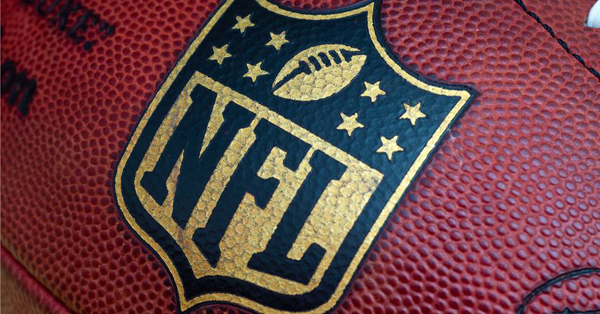 who has been diagnosed with dementia and probable chronic traumatic encephalopathy, a neurodegenerative disease.’” —Nadia Kounang, CNN
who has been diagnosed with dementia and probable chronic traumatic encephalopathy, a neurodegenerative disease.’” —Nadia Kounang, CNN
¶ Watch this brief video (1:00) of former NFL player Chris Borland explains how you can make sure science isn’t sidelined in the investigation of sports-related brain injuries. —Union of Concerned Scientists
¶ Words of assurance. “Whenever God shines his light on me / Opens up my eyes so I can see / When I look up in the darkest night / And I know everything's going to be alright / In deep confusion, in great despair / When I reach out for him he is there / When I am lonely as I can be / And I know that God shines his light on me.” —Van Morrison, “Whenever God Shines His Light On Me”
¶ Hymn of intercession. “My soul cries out now, can’t you hear it / Trying to find one kindred spirit / I’m bettin’s hard on you to see me thru / /If I don’t drown in these bad times / I’ll be a better swimmer when I’m thru.” —Larry Jon Wilson, “Kindred Spirit” (Thanks Tim.)
¶ Super Bowl actual madness. “When Martin Luther King Jr. delivered a sermon imploring hearers to imitate the servanthood of Jesus, he probably didn't envision them buying Ram trucks to do so. And yet there was King's voice Sunday night, booming through millions of TV speakers during Ram's latest Super Bowl ad:
"‘If you want to be important—wonderful. If you want to be recognized—wonderful. If you want to be great—wonderful. But recognize that he who is greatest among you shall be your servant. That's a new definition of greatness.’
“The speech, delivered 50 years ago on Feb. 4, 1968, served to inspire a Ram Trucks ad of American workers wiping brows, fishing and riding horses, doing pushups and, of course, driving ram Trucks.
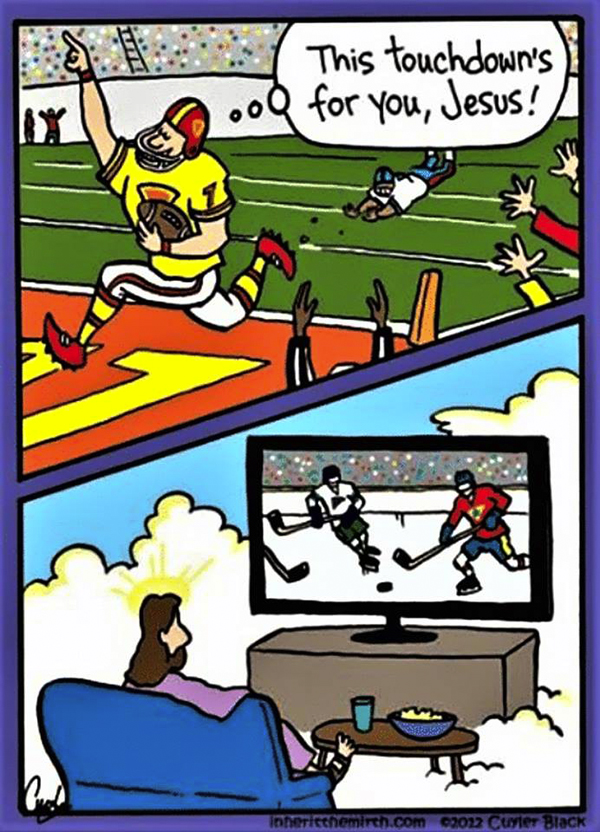 “After King's speech culminates, the ad's tagline appears: Built to serve.” —Josh Hafner, USA Today
“After King's speech culminates, the ad's tagline appears: Built to serve.” —Josh Hafner, USA Today
¶ Ironically, that same speech by King had these sentences:
Advertisers “have a way of saying things to you that kind of gets you into buying. In order to be a man of distinction, you must drink this whiskey. In order to make your neighbors envious, you must drive this type of car. In order to be lovely to love you must wear this kind of lipstick or this kind of perfume. And you know, before you know it, you’re just buying that stuff.”
¶ When only the blues will do. Toby Lee (age 12) sitting in with Ronnie Baker Brooks, in Frederikshavn, Denmark. (Thanks Abigail.)
¶ Preach it. Recently “visiting Brazilian pastor-theologian Odja Barros testified in our congregation. She was asked to say where she sees God at work. ‘I have confess,’ she began, ‘that the first thing that comes to mind is to say where I see God’s absence,’ going on to name just a few of the places, in concrete detail, where breaking and bruising and battering dominate the landscape. Deus absconditus.” —continue reading “Lent is the season when ‘Moonlight’ upstages ‘La La Land,’ A Fat Tuesday meditation”
¶ It was interesting to see, in another of the Super Bowl’s commercials, how interfaith relations has gone mainstream. Is this a good thing? (Thanks Shanta.)
¶ Can’t makes this sh*t up. The designated, customized presidential plane, Air Force One, is getting new refrigerators—at a cost of $23.7 million. —Time magazine
¶ In Washington, D.C. and more than two dozen states across the country on Monday, supporters of the Poor People's Campaign: A National Call for Moral Revival gathered to kick off 40 days of "moral action" to highlight "the human impact of policies which promote systemic racism, poverty, the war economy, and environmental devastation."
Led by co-chairs Rev. Dr. William J. Barber and Rev. Dr. Liz Theoharis—and inspired by Rev. Dr. Martin Luther  King Jr.'s original Poor People's Campaign in the late 1960s—the campaign, which was announced last year, live streamed a press conference from D.C. and delivered to lawmakers a letter outlining their demands for policy changes.
King Jr.'s original Poor People's Campaign in the late 1960s—the campaign, which was announced last year, live streamed a press conference from D.C. and delivered to lawmakers a letter outlining their demands for policy changes.
¶ Call to the table. “Everything begins in ecstasy and ends in politics.” —Charles Peguy
¶ The state of our disunion. Consumers can now get some relief from social media harassment. Purchase a home safe for your smartphone. When you get home, put that pesky co-dependent device in there, close the door, then set the timer for how long you want it unavailable. —USAToday
¶ If you think the above is funny, you’ll love this social media satire. (2:42 video. Thanks Joy.)
¶ Best one-liner. “A neuropathologist examined the brains of 111 NFL players—and 110 were found to have C.T.E., the degenerative disease linked to repeated blows to the head.” —“The Human Brain and Sports,” New York Times
¶ For the beauty of the earth. Three-time bronze medalist and Olympic alternate Elizabeth Putnam skating on a remote, frozen lake in the mountains of British Columbia—and filmed by a videographer in an overhead helicopter. (3:18 video. Thanks Linda.)
¶ Altar call: against what passes for realism. “I think hard times are coming when we will be wanting the voices of writers who can see alternatives to how we live now and see through our fear-stricken society.” —Ursula LeGuin,  who died 22 January, from her address to the National Book Award ceremony (6:08 video. Thanks Rose.)
who died 22 January, from her address to the National Book Award ceremony (6:08 video. Thanks Rose.)
Left: Art by Julie Lonneman
¶ For Ash Wednesday’s lection. “‘I’m really tired of your smells and bells and frills and thrills.’ From the hollow of the Most High thunders the complaint of Heaven against every piety peddler. Good God a’Mighty, when we say our hail-marys, our thank-you-jesuses and our god-bless-americas—why don’t you tip your hat and offer a prize?! ‘Your prayer breakfasts don’t cut it, given the way you treat school teachers and ICE-hounded immigrants.’” —“Riff on Isaiah five-eight,” a litany for worship inspired by Isaiah 58
¶ Benediction. Sisters and brothers, the metric of spiritual health is surprisingly simple: “Where your treasure is, there will your heart be also.” —Matthew 6:21
¶ Recessional. The Fusion Fighters Irish dance troupe.
¶ Lectionary for this Sunday. On the importance of unfiltered prayer: “I will accept no bull in my house.” —a play on the words of Psalm 50:9
¶ Lectionary for Sunday next. “To the Blessed One of Heaven does my heart heave its burden. For release from my shame, I wait all the day long. Silence accusers; still every sharp tongue. For pardon amid failure, I wait all the day long. Alone to you do I yield, sealed in grace unrelenting. For the hint of your mercy, I wait all the day long.” —continue reading “All the day long,” a litany for worship inspired by Psalm 25
¶ Ash Wednesday. “Burned palm fronds smeared on the forehead, in a shape that originally marked one for assassination? What kind of masochistic movement is this? I mean, I’m just now beginning to get over a lot of self-hatred I learned as a kid, and now you’re telling me I actually need to embrace suffering?” —continue reading “Ash Wednesday: the only counter cultural holiday we have left”
¶ Just for fun. The world’s most adorable wrestling match. (0:58 video. Thanks Pat.)
# # #
Featured this week on prayer&politiks
 • “Wilderness: Lenten preparation,” a collection of biblical texts that speak of wilderness
• “Wilderness: Lenten preparation,” a collection of biblical texts that speak of wilderness
• “Riff on Isaiah five-eight,” a litany for worship inspired by Isaiah 58
• “The Ties That Bind,” The Integrity of Penitence, on the 50th Anniversary of the Massacre at My Lai
• “All the day long,” a litany for worship inspired by Psalm 25
Valentine’s Day
• “St Valentine,” remembering prisoners on his feast day
©Ken Sehested @ prayerandpolitiks.org. Language not otherwise indicated above is that of the editor, as are those portions cited as “kls.” Don’t let the “copyright” notice keep you from circulating material you find here (and elsewhere in this site). Reprint permission is hereby granted in advance for noncommercial purposes.
Feel free to copy and post any original art on this site. (The ones with “prayer&politiks.org” at the bottom.) As well as other information you find helpful.
Your comments are always welcomed. If you have news, views, notes or quotes to add to the list above, please do. If you like what you read, pass this along to your friends. You can reach me directly at kensehested@prayerandpolitiks.org.


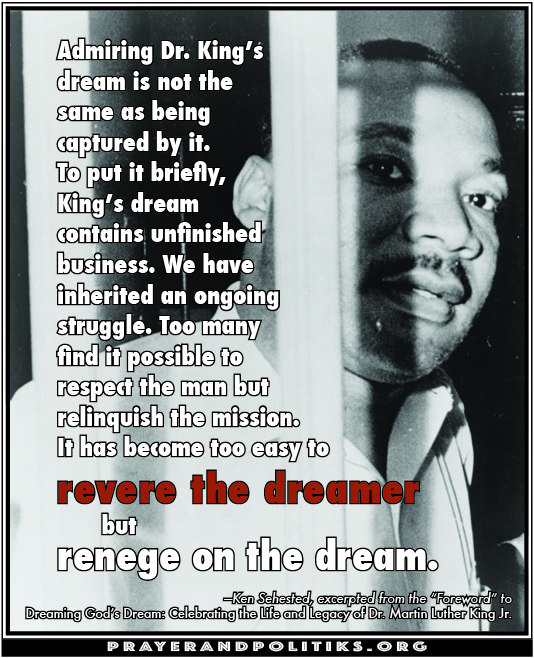 voted down a resolution of sympathy to members of Birmingham’s Sixteenth Street Baptist Church, one day after the terrorist bombing in 1963 that killed four children.
voted down a resolution of sympathy to members of Birmingham’s Sixteenth Street Baptist Church, one day after the terrorist bombing in 1963 that killed four children.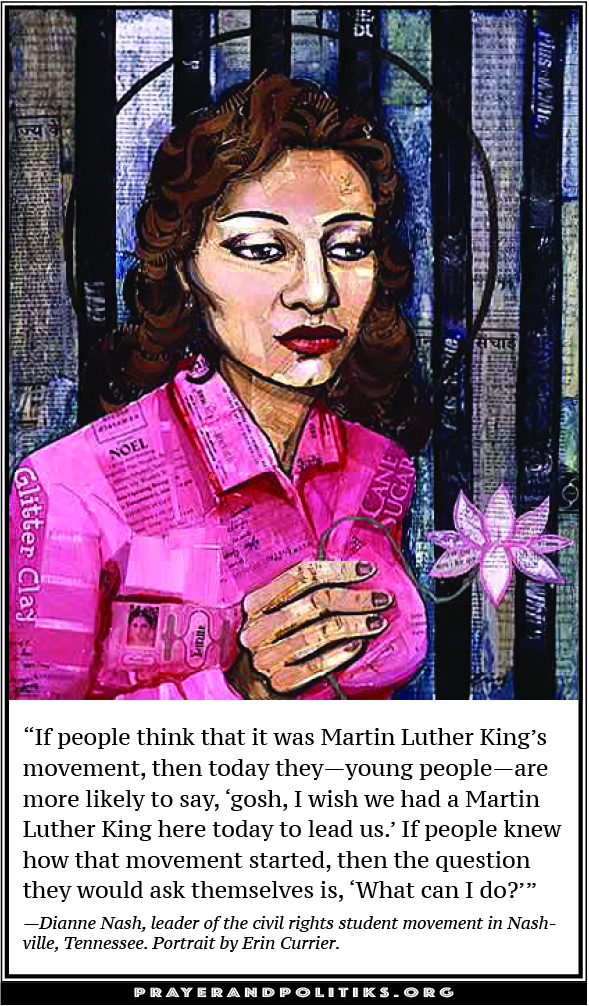 The Washington Post said “King has diminished his usefulness to his cause, his country, his people.”
The Washington Post said “King has diminished his usefulness to his cause, his country, his people.”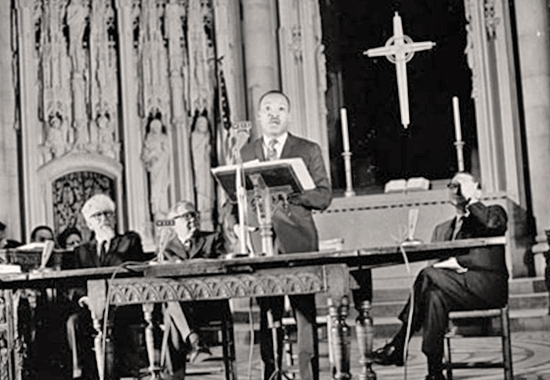 civil rights struggle but also in vigorous opposition to the War in Vietnam. Heschel was known for speaking about “praying with my legs” in reflecting on his marches alongside King and other civil rights leaders.
civil rights struggle but also in vigorous opposition to the War in Vietnam. Heschel was known for speaking about “praying with my legs” in reflecting on his marches alongside King and other civil rights leaders. by Ken Sehested
by Ken Sehested Rather, disconsolation is the Beloved’s tutor sent to
Rather, disconsolation is the Beloved’s tutor sent to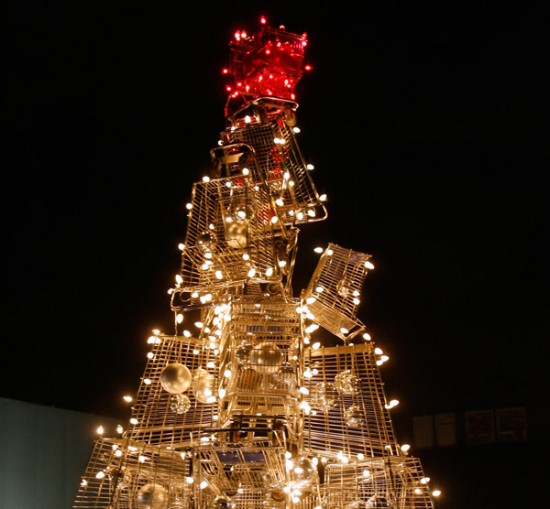 the Holy Innocents,” the ISIS-like episode of Herod’s desperate attempt to wipe out an imperial threat by the slaughtering baby boys around Bethlehem. Which then prompted the holy family to undertake a Syrian refugee-like flight through the Sinai desert to Egypt.
the Holy Innocents,” the ISIS-like episode of Herod’s desperate attempt to wipe out an imperial threat by the slaughtering baby boys around Bethlehem. Which then prompted the holy family to undertake a Syrian refugee-like flight through the Sinai desert to Egypt.
 overishing policies, assuring a steady stream of docile recipients for next year’s benevolent binge. Time now for marshmallowy hot cocoa and Rudolph’s red nose. Ah, the aroma of chestnuts roasting! And happy 100th birthday anniversary, Frank Sinatra!
overishing policies, assuring a steady stream of docile recipients for next year’s benevolent binge. Time now for marshmallowy hot cocoa and Rudolph’s red nose. Ah, the aroma of chestnuts roasting! And happy 100th birthday anniversary, Frank Sinatra!
 important question. Whether US elections qualify as such is also an important question.)
important question. Whether US elections qualify as such is also an important question.)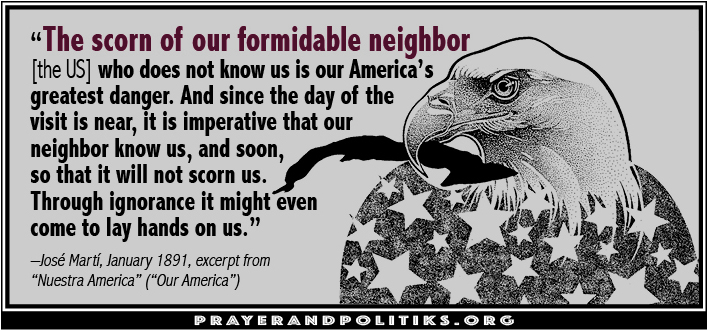 those, 35.4% were women and 14.3% were “youth” (up to age 29). —for more see
those, 35.4% were women and 14.3% were “youth” (up to age 29). —for more see 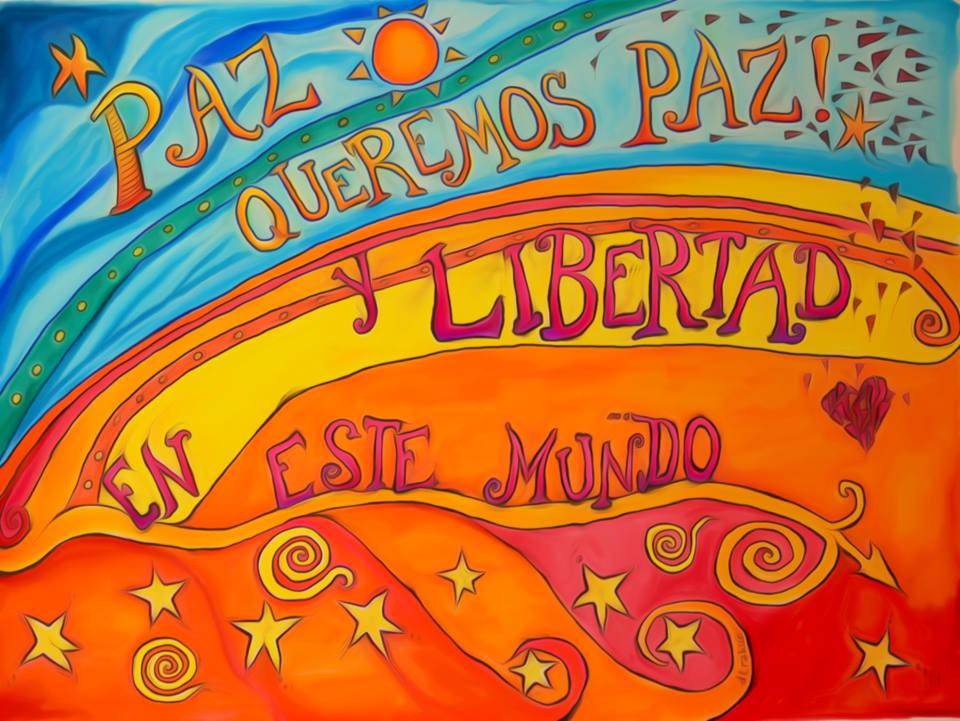 praying and go back to the church, and I’m not joking.” —
praying and go back to the church, and I’m not joking.” — ke the divine power of medicinal plants to heal a sick person.
ke the divine power of medicinal plants to heal a sick person. was the first Christian to be elected to Cuba’s National Assembly, in 1992, after the country’s constitution was edited to remove language identifying the nation as “atheist.” Two other clergy serve as deputies in the National Assembly: Miriam Ofelia Ortega, a Presbyterian, and Pablo Odén Marichal, an Episcopalian.
was the first Christian to be elected to Cuba’s National Assembly, in 1992, after the country’s constitution was edited to remove language identifying the nation as “atheist.” Two other clergy serve as deputies in the National Assembly: Miriam Ofelia Ortega, a Presbyterian, and Pablo Odén Marichal, an Episcopalian.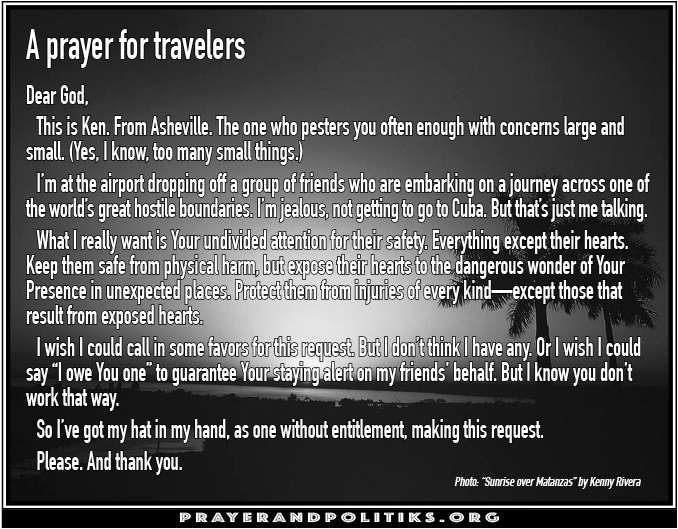 Republican Steve King
Republican Steve King Carolina is no longer classified as a democracy
Carolina is no longer classified as a democracy